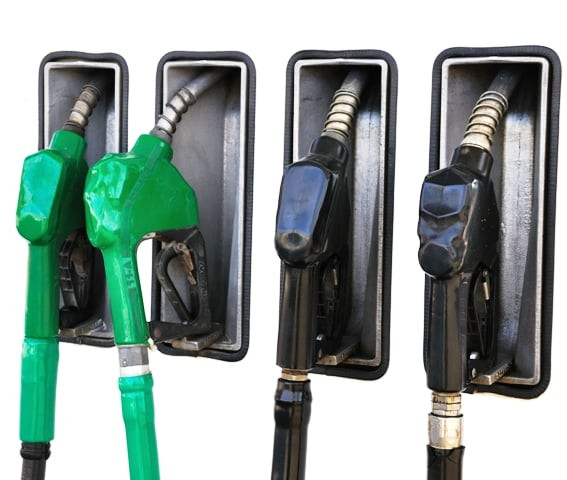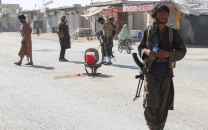Energy costs: Govt approves 6% raise in petroleum prices
Rise meant to be in line with the international price of oil.

Energy costs: Govt approves 6% raise in petroleum prices
The government increased prices of petroleum products on Saturday by between 4.8 per cent and 11.8 per cent, on the heels of sharp rises in oil prices in the international market, even as the government’s pricing formula has come under attack. The new prices will be effective May 1 (today).
The Oil and Gas Regulatory Authority (Ogra) has notified these increases in prices of petroleum products. According to the notification petrol prices have been increased by 5.8 per cent to Rs88.41 per litre. High-speed diesel rates have gone up 4.8 per cent to Rs97.31 per litre. Kerosene prices have gone up by 6.7 per cent to Rs89.70 per litre and prices for high-octane fuel has risen by 1.8 per cent to Rs99.92 per litre. Light diesel fuel rates went up by 11.8 per cent to Rs88.30 per litre.
Last month the government increased the prices of petroleum products by between 9 per cent and 13 per cent, which drew severe criticism from across the political spectrum.
Several political parties, including the government’s coalition ally, the Muttahida Quami Movement (MQM) and the opposition Pakistan Muslim League Nawaz (PML-N) have been proposing a review of the government’s pricing formula for domestic retail prices of petroleum products. Now, they are joined by several independent economists who have also criticised the formula.
At present, the government levies taxes at four different stages of the petroleum chain. Economic analysts have proposed levying the tax only at one stage which would be when the oil lands at the country’s ports from abroad.
Currently, the government collects customs duties on the landed price of oil, which itself includes a sales tax levied at the import stage. The government then collects excise duties and then adds another sales tax at the domestic sales stage.
During the fiscal year that ended June 30, 2010, the government collected Rs351 billion in taxes on petroleum. In the first nine months of the current fiscal year, the government has collected Rs225 billion in petroleum taxes.
Critics of the government’s policies say that the taxes drive up inflation in the country by increasing transportation costs. In addition, the rural population is dependent upon kerosene for its cooking fuel as an alternative to firewood. The more well-off urban population, however, has the cheaper option of using gas.
The government, however, argues that with revenues abysmally low, it has no choice but to continue taxing petroleum or else face a dramatic rise in the fiscal deficit, which will have to be made up for by printing money through the State Bank, itself the single biggest cause of skyrocketing inflation in the country.
The International Monetary Fund (IMF) has insisted that the government deregulate energy prices as part of the global lender’s $11.3 billion bailout program. On Friday, the Pakistan Business Council, an advocacy group consisting of 35 of the largest conglomerates in the country, also called for a deregulation of energy prices.
Published in The Express Tribune, May 1st, 2011.



















COMMENTS
Comments are moderated and generally will be posted if they are on-topic and not abusive.
For more information, please see our Comments FAQ